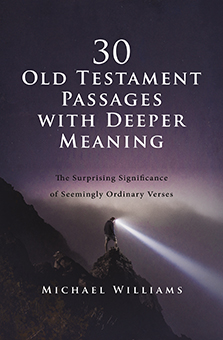
The Ten Commandments: Guidelines for a Maximally Fulfilling Life
Is There a Historical Precedent for the Ten Commandments?
Long ago (around 3500 years ago) and far away (in what is modern-day Turkey) the Hittites ruled an empire that extended from Asia Minor to Upper Mesopotamia. Interesting, sort of, you could be thinking, but what does this have to do with the Ten Commandments? More than you might expect. Bear with me while I explain.
As the Hittite Empire grew, it encountered territory ruled by lesser kings. As an alternative to armed conflict, the Hittite kings offered the lesser kings the option of acquiescing to a formal treaty arrangement. These treaties between the Hittite king (the suzerain) and the subordinate king (the vassal) had a fixed form, the heart of which included: stipulations, blessings for carrying out the stipulations, and curses for violating them.
How Are the Ten Commandments Like and Unlike These Treaties?
Scholars have long recognized that the book of Deuteronomy seems to intentionally parallel these Hittite suzerain-vassal treaties. Further details regarding how this is so can be found in chapter 8 (“Enduring Witnesses”) of my new book, 30 Old Testament Passages with Deeper Meaning (Zondervan, 2023).
What is important for us to note here in our reflection on the Ten Commandments is that the biblical iteration of them found in Deuteronomy corresponds to the “stipulations” section of a Hittite suzerain-vassal treaty. The Israelites who heard these divinely delivered commands, therefore, would recognize them as God’s stipulations for the behavior that was required of them to remain in a healthy relationship with him. That is, the stipulations/commandments describe how the Israelites could enjoy the blessings that resulted from appropriate behavior within the treaty (or covenant) arrangement and avoid the curses that would result from a failure to do so.
Who Benefits When the Ten Commandments Are Obeyed?
But where the biblical covenant stipulations part ways with the Hittite treaty stipulations is in their purpose. In the Hittite treaty, the suzerain required behavior from his vassals that would promote his own interests. The vassals had no negotiation chips to play; they either complied or they would be crushed. In the words of the Borg (for Star Trek fans): resistance was futile. Of course, no one with whom God enters into a covenant relationship has any negotiation chips to play either. But our suzerain is not like the Hittite suzerain. Because where the Hittite suzerain mandated stipulations that ultimately benefited him, God mandates stipulations that ultimately benefit us.
The Bible itself tells us this is true (more on this later), but we often see God more as a Hittite suzerain who will crush us if we don’t do what he commands instead of as a gracious God who seeks our good. I suspect that’s because we’ve all regularly experienced human commands that have been motivated by a desire for self-advancement: “Get out of my way!” “Don’t interrupt me!” “Just do what I say!” “Wait until I’m done!”
While we can possibly conceive of circumstances where commands like these might be acceptable, we have to admit that those circumstances are usually not present when we hear them. So we may, perhaps even unconsciously, begin to associate all commands with the unwelcome imposition of someone else’s will at our expense.
Commands of any sort, we might conclude, restrict our freedom and experience of the fullest possible life we could otherwise have. That was certainly true for the stipulations Hittite vassals had to accept and it seems true as well, we might think, for the biblical commands that God’s people are to accept.
Commands Save and Protect Life
But commands, even human ones, are not necessarily bad. In fact, instead of restricting our lives, they may in fact save our lives. I went around my home and searched the labels on common household products for all the positive and negative commands that are intended to prevent a catastrophe:
• Do not consume! (on a bleach bottle)
• Do not spray on heated surfaces, heated pots or pans, or near open flame! (on non-stick spray)
• Promptly see doctor if swallowed! (on a pack of AA batteries)
• Keep away from heat, spark, electrical, fire or flame! (on a container of rubbing alcohol)
• Do not use in microwave oven! (on a box of aluminum foil)
• Use only in a well-ventilated area! (on a bottle of spray cleaner)
• Do not put in water! (on a hand-mixer)
• Keep out of reach of children! (on a box of pain reliever tablets)
• Do not use by mouth! (on a jar of medicated ointment)
• Wear safety glasses when operating! (on a power tool)
The 10 Commandments in the Bible
Take these warnings into account as you think about the Ten Commandments as they are outlined in Exodus 20. As you read, ask yourself—are these commands designed to restrict my freedom or protect it?
¹And God spoke all these words:
² “I am the LORD your God, who brought you out of Egypt, out of the land of slavery.
³ “You shall have no other gods before me.
⁴ “You shall not make for yourself an image in the form of anything in heaven above or on the earth beneath or in the waters below.⁵ You shall not bow down to them or worship them; for I, the LORD your God, am a jealous God, punishing the children for the sin of the parents to the third and fourth generation of those who hate me, ⁶ but showing love to a thousand generations of those who love me and keep my commandments.
⁷ “You shall not misuse the name of the LORD your God, for the LORD will not hold anyone guiltless who misuses his name.
⁸ “Remember the Sabbath day by keeping it holy. ⁹ Six days you shall labor and do all your work, ¹⁰ but the seventh day is a sabbath to the LORD your God. On it you shall not do any work, neither you, nor your son or daughter, nor your male or female servant, nor your animals, nor any foreigner residing in your towns. ¹¹ For in six days the LORD made the heavens and the earth, the sea, and all that is in them, but he rested on the seventh day. Therefore the LORD blessed the Sabbath day and made it holy.
¹² “Honor your father and your mother, so that you may live long in the land the LORD your God is giving you.
¹³ “You shall not murder.
¹⁴ “You shall not commit adultery.
¹⁵ “You shall not steal.
¹⁶ “You shall not give false testimony against your neighbor.
¹⁷ “You shall not covet your neighbor’s house. You shall not covet your neighbor’s wife, or his male or female servant, his ox or donkey, or anything that belongs to your neighbor.”
The Ten Commandments Lead Us to the Fullest Possible Life
All of the ten commandments in the first list above are intended to save or protect life. We would agree that only a terribly foolish person would ignore them. The same is true of the Ten Commandments (found in Exodus 20:1–17, above, and Deuteronomy 5:6–21). These biblical commands are also given to save or protect life; but even beyond that, they are given to us so that we can know how to experience the fullest possible lives.
Consider the motivation for obeying biblical commands outlined in the following verses:
Keep his decrees and commands, which I am giving you today, so that it may go well with you and your children after you and that you may live long in the land the Lord your God gives you for all time. (Deuteronomy 4:40, emphasis added)
The Lord commanded us to obey all these decrees and to fear the Lord our God, so that we might always prosper and be kept alive, as is the case today. (Deuteronomy 6:24, emphasis added)
And now, Israel, what does the Lord your God ask of you but to fear the Lord your God, to walk in obedience to him, to love him, to serve the Lord your God with all your heart and with all your soul, and to observe the Lord’s commands and decrees that I am giving you today for your own good? (Deuteronomy 10:12–13, emphasis added)
Whoever scorns instruction will pay for it,
but whoever respects a command will be rewarded. (Proverbs 13:13, emphasis added)
Notice that nowhere in the Bible is it said that our obedience benefits God somehow. After all, how could it? Rather, our obedience to God’s commands benefits us! The One who made us knows how his creations can function at their peak performance and enjoy the fullest possible lives. And he has told us what that looks like by means of the Ten Commandments. Only a terribly foolish person would ignore them.
Jesus Obeys on Our Behalf and Suffers on Our Behalf
Biblical commandments differ from the stipulations of a Hittite treaty document in a couple other, significant ways. First, realizing that we would not be able to perpetuate the relationship with our king by faithfully carrying out these stipulations, God became a perfect human being so that he could do this on behalf of all those who claim that perfect human as their representative. In other words, the blessings God promises for carrying out his relational stipulations are realized by all those who put their faith in Jesus (Galatians 3:14; Ephesians 1:3).
The second way biblical commandments differ from the stipulations of a Hittite treaty document is in the way violators are dealt with. For those who violated the stipulations of the treaty, the Hittite king invoked his gods to destroy them and their entire families, their town, their land, and everything they owned (see, for example, the “Treaty between Šuppiluliuma and Aziru” (COS 2.17a: 95). But, again, realizing that we would invariably fail to keep the relational stipulations/commandments, God became flesh to bear the curse for that failure himself. As the apostle Paul succinctly puts it: “Christ redeemed us from the curse of the law by becoming a curse for us” (Galatians 3:13). There is now no condemnation for those who put their faith in Jesus (Romans 8:1).
How Are the Ten Commandments Still Relevant Today?
So do we need to keep the commandments today if Jesus has already paid the price for our failure to keep them? To answer this question, we have to remember why these stipulations were given to us in the first place.
First, God has given us these commandments to guide us into a maximally fulfilling life—life in closest possible relationship with the Lord, the giver of life (commandments 1–4) and in mutual, life-affirming relationship with one another (commandments 5–10). Jesus summarizes these commandments as loving the Lord our God with all our heart, soul, mind, and strength, and loving our neighbor as ourselves (Mark 12:30–31). We only need to do these things if we desire to know life in all its fulness.
Second, God even sends his Holy Spirit to indwell us (John 14:26; 15:26; 16:13) and enable us to realize this fulness of life to an increasing degree as he transforms us into the likeness of the one who did it perfectly (Romans 8:9–14; 2 Corinthians 3:18); that is, the likeness of the perfect relationship partner: Jesus himself.
The Ten Commandments and the Gospel are Both Good News!
Contrary to those who place the law and the gospel in tension, we recognize that the Ten Commandments, too, are gospel, or good news! Consider the following:
1 – The fact that we have these divinely delivered guidelines on how to enjoy the fullest possible life is good news.
2 – Moreover, the Ten Commandments lead us to discover the good news that all the blessings of an unbroken relationship with God have been secured for us forever through the relational obedience of the Son.
3 – Reflection on the Ten Commandments also reveals the good news that the negative consequences for our failure to keep the stipulations it outlines have been paid for by the only human being who perfectly did, or could, keep them: Jesus Christ our Savior.
4 – Finally, the goal of the Ten Commandments is realized in the good news that God has sent his Spirit to transform us into those who by increasing degrees obey them.
So yes, the Ten Commandments are indeed good news! Because by obeying them (as we are empowered by the Spirit) we will experience the life-generating, -enhancing, and -furthering relationship with God and one another that constitute a maximally fulfilling life.
By Michael Williams.

30 Old Testament Passages with Deeper Meaning
Feed your curiosity of the Bible by exploring the deeper meaning behind familiar Old Testament passages. Below the surface of every seemingly ordinary Bible verse lies a deeper meaning just waiting to be discovered. And these hidden insights aren’t just reserved for scholars, academics, or pastors. Anyone who knows where to look can uncover the surprisingly significant messages that the biblical authors intended for us to hear.
Learn More







The Old Testament is of lower dispensation than New Testament which speaks of better promises to come through Jesus Christ our LORD! Consider how the Old Testament looked back to their hope in God of Abraham, Isaac and Jacob, while we look forward on the father of our Lord Jesus Christ.